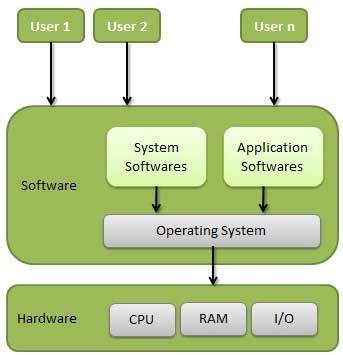DCA
Important Links
What is Operating System?
An operating system (OS) is system software that manages computer hardware and software resources and provides common services for computer programs. . it enables the computer hardware to communicate and operate with the computer software.
An Operating System (OS) is an interface between a computer user and hardware. An operating system is a software which performs all the basic tasks like file management, memory management, process management, handling input and output, and controlling peripheral devices such as disk drives and printers.
operating system initially loaded into the computer by a boot program. it manages all the other programs in a computer. The other programs are called applications or application programs. In addition, users can interact directly with the operating system through a user interface such as a command line or a graphical user interface (GUI).

Examples of operating systems :-
Following are some of important functions of an operating System.
Memory Management :-
Memory management is the process of controlling and coordinating computer memory. Memory management resides in hardware, in the OS (operating system), and in programs and applications.
memory management involves components that physically store data, such as RAM (random access memory) chips, memory caches, and flash-based SSDs (solid-state drives). In the OS, memory management involves the allocation of specific memory blocks to individual programs as user demands change. At the application level, memory management ensures the availability of adequate memory for the objects and data structures of each running program at all times.
Processor Management :-
In multiprogramming environment, the OS decides which process gets the processor when and for how much time. This function is called process scheduling. An Operating System does the following activities for processor management −
Device Management :-
An Operating System manages device communication via their respective drivers. It does the following activities for device management −
File Management :-
A file system is normally organized into directories for easy navigation and usage. These directories may contain files and other directions. An Operating System does the following activities for file management −